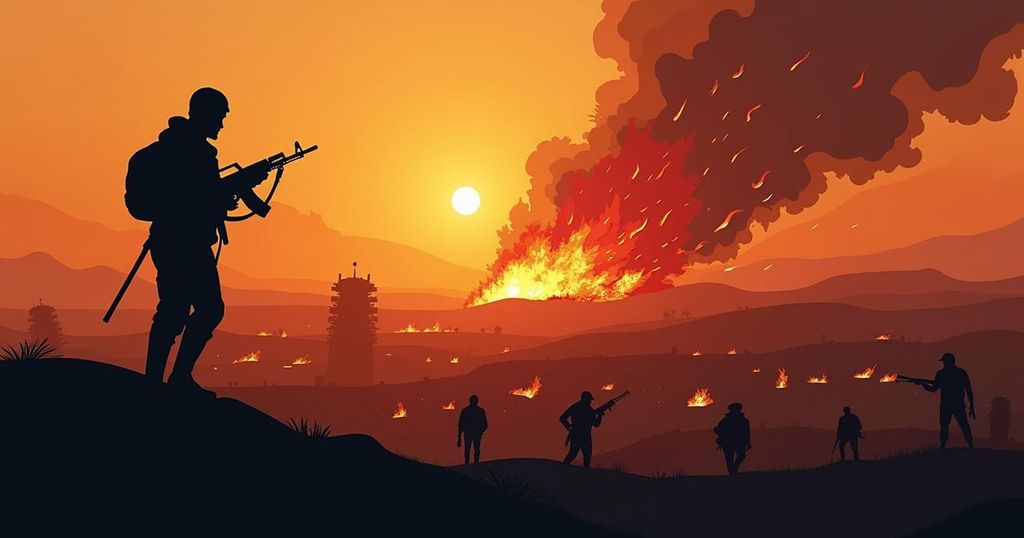Is a Wider Conflict in the Middle East Inevitable Following Nasrallah’s Assassination?

The assassination of Hassan Nasrallah by Israel raises concerns of a potential wider conflict in the Middle East involving Iran and Hezbollah. Despite predictions of immediate escalation, both Iran and Israel face significant strategic considerations that may temper aggressive actions. The situation remains volatile, demanding urgent diplomatic interventions to prevent further conflict.
The assassination of Hassan Nasrallah by Israeli forces poses significant implications for the stability of the Middle East, with escalating concerns regarding potential regional conflict involving Iran and Hezbollah. This situation has prompted urgent discussions regarding diplomatic solutions, as warnings of impending war reverberate throughout the region. Notably, this recent event arrives amidst a backdrop of already strained relations and hostilities, marking a pivotal moment that could influence Iran’s role and strategic decisions regarding Hezbollah. Iran’s support for Hezbollah has historically been strong, recognizing the group as a vital ally against Israeli aggression, and the current crisis may present Iran with a dilemma of whether to intervene militarily to prevent perceived annihilation of its ally. Despite fears that violence may increase, there exist compelling reasons for Iran to adopt a more cautious approach, especially considering its current economic and political vulnerabilities exacerbated by sanctions and internal dissent. The complexities of the region suggest that rash decisions could have dire consequences, drawing multiple parties into a volatile conflict. In addition, Israel has the option to capitalize on this perceived momentum by launching ground incursions into Lebanon, which could inadvertently escalate tensions and provoke further military actions from Iranian-affiliated militias and military assets stationed in Syria. Such actions could not only destabilize Lebanon’s already fragile political environment but also invite additional conflict into the broader regional landscape. Thus, while the momentum in the region could suggest inevitable escalation, both Iran and Israel face significant considerations that may deter immediate military responses, emphasizing the urgent need for diplomatic efforts to prevent further deterioration of the situation.
The article discusses recent developments in the Middle East following the assassination of Hassan Nasrallah, the leader of Hezbollah, by Israeli forces. This event has sparked fears of a larger regional conflict involving Hezbollah and its patron, Iran. The escalating situation calls into question the efficacy of US-led diplomatic efforts in the region, especially given Hezbollah’s history of violence against Western and Israeli interests. As the dynamics shift post-assassination, how Iran and Israel respond could significantly impact the trajectory of conflict in the Middle East.
In conclusion, the assassination of Hassan Nasrallah represents a critical juncture for the Middle East, with the potential to escalate into broader military conflict should either side opt for aggressive action. Nonetheless, both Iran and Israel must navigate their respective challenges with caution, balancing military ambitions against the risks of provoking more extensive warfare. Continued diplomatic efforts remain essential to de-escalate tensions and foster stability in this complex geopolitical landscape.
Original Source: news.sky.com








